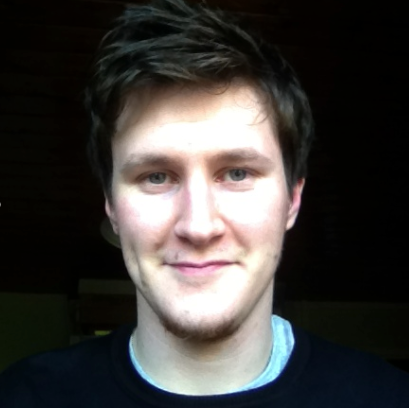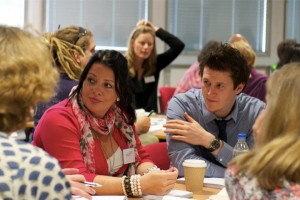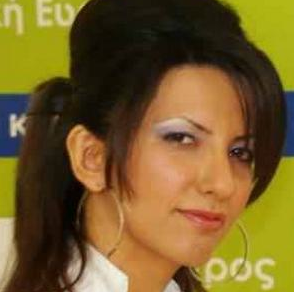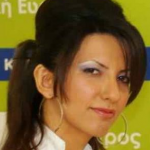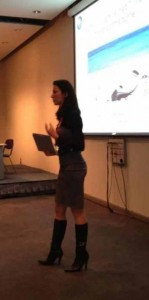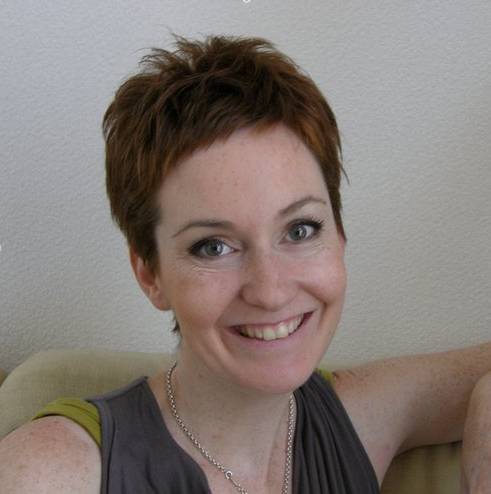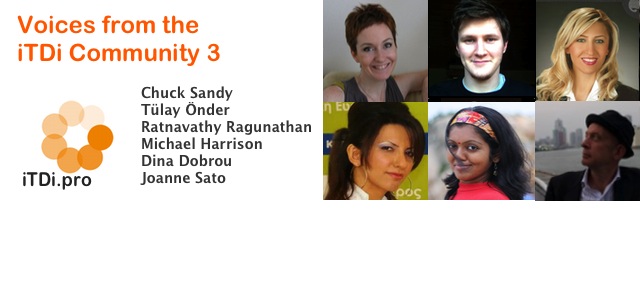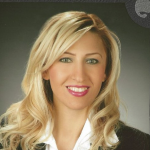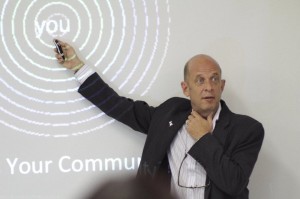Joanne Sato lives and teaches at a women’s university in Sendai city, northern Japan. She has 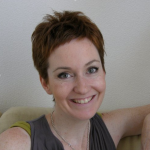 been a teacher in Japan for thirteen years since she graduated university in England. The first three spent in a variety of contexts in Tokyo, the remaining ten in Fukushima city at a women’s college. She’s passionate about collaboration, both in the classroom with students and outside the classroom with other educators.
been a teacher in Japan for thirteen years since she graduated university in England. The first three spent in a variety of contexts in Tokyo, the remaining ten in Fukushima city at a women’s college. She’s passionate about collaboration, both in the classroom with students and outside the classroom with other educators.
She also loves to go camping with her family, being outside makes her feel alive, especially in her kayak, on a lake, when the sky and water seems to be the same. Joanne also likes to laugh a lot!
What are you passionate about, Joanne?
Me? I am driven by others, if I can do something for someone else I do it better than if it were for myself. I suppose that is why I love being a teacher, because all day, everyday I get to do things for others. I have a great desire to see my students succeed. I think success is so much sweeter after failure, and many of the students I encounter in my context feel like they are failures when it comes to language learning. I do not think there is a greater feeling in the world than watching a student realize their dreams. Dreams and success could come with overcoming crippling shyness, with a small breakthrough in pronunciation, with learning how to work in a group, with landing ‘that’ job, with stopping skipping class, with learning to enjoy language as a tool, with not giving up…the list is as long as the number of students.
I am also driven by happiness, both my desire for it and the desire to make others happy. I think many of the truly happiest moments in life were in the classroom. Those moments or periods when everything seems to flow, I think of these moments as my teaching goal, my teaching dream. In those moments I feel so lucky that my job makes me fundamentally happy and content.
I also love to be around people, interacting, chatting, talking, discussing – I think better with others. I see it as thinking out loud, in the open. What I have achieved so far in my teaching life is through the support of so many great minds, both at work in my local context, and in the broader context of online colleagues and friends. Barbara, Steven, Chuck and Scott and all the teachers at iTDi are my ELT heroes and constantly inspire me to action. They have had a deep impact on who I am as an educator and what I think it means to be a great teacher.
I’m also very passionate about music. I fill my house with music everyday. I love guitar music and have recently begun to teach myself how to play.
How and why did you become a teacher?
Being a teacher is very big part of who I am – it is how I identify myself. I was always going to be a teacher (just not in Japan, but that’s the way life worked out). Learning has always excited me and I think the reason I became a teacher was a combination of exciting moments I remember from my own education and my love of being with others.
I remember the exciting moments. When I discovered Jacques Derrida, Roland Barthes and the concepts of semiotics, it changed the way I saw the world. I remember reading Simone de Beauvoir “The Second Sex” and it changed how I thought of myself as a women. I remember learning how to paint flesh and faces and it changed how I looked at others. I remember reading about Communities of Practice and it changed how I saw my communities and me in them. The list is endless, but it was moments when I had a shift in how to think, and I always got there with the support of teachers, scaffolding my ideas with patience and passion. That is what I want to be to my students, a teacher with passion and patience. That is why I love teaching university students; they are ready for changes to the conceptual spaces within themselves.
This learning process I have gone through is still ongoing and I am still learning what it is to teach. iTDi is one of my favourite and most exciting learning spaces!
I think teaching also fulfills a selfish desire to be loved, too – if I am a good, fair, interesting, motivated, passionate teacher who encourages, guides, and fights for my students right to a brilliant education, then my students will love me. Everyone wants to be loved!
What are you most interested in right now?
In an EFL context (English as a Foreign Language), it is always a struggle for students to find meaningful ways of using English outside of class, especially in such a monolingual country as Japan. There are of course many more opportunities becoming available via the Internet, but I am also very interested in creating ways for students to find face-to-face interaction opportunities in our local community.
My favourite place where we can create many opportunities like this is in the English drama group at university. We perform a short play every year in a local competition between universities. The logistics of the play are also carried out in English so not only the actors, but also the lighting crew, back stage crew, the director, and producers all get to use English in a variety of ‘real’ situations. This work involves many hours after school, helping the students rehearse, design sets, plan lighting and music sequences, and finally perform the play. The experience the students (and teachers) get from this is both intense and powerful, and of course hugely motivational.
I also set up a program with local nursery schools in which our students in the ‘Teaching English to Children’ course get first-hand experience with children in a real setting. The moment the students are confronted with real live children with all their noise, activity and tears is always a turning point in the students’ vision of what it actually means to teach children. The students write and illustrate beautiful stories; make cards, puppets and a whole variety of other teaching props with such enthusiasm and care because they know that the children will love to play with them. The students make huge efforts to practice and perform songs, to peg down chants and dances because they know the children will respond with such excitement. The students begin to realize the job of teaching is rewarding and yet incredibly challenging. Seeing budding teachers start out on their journey is one of my favourite experiences as a teacher.
We also initiated a program for providing English-speaking guides at various local festivals and events. In these situations the students have a great chance to learn about Japanese culture and customs in English. Explaining complex histories in English is a huge challenge, but certainly an interesting one.
In research terms I am also interested in what actually goes on in classrooms, as opposed to what research says goes on, or what teachers think goes on. In research for my MA dissertation I recorded hours of lessons and analyzed the data through discourse analysis. I wanted to find out if there is gap between what we think of our classrooms, what our students think and what research says. I am especially interested in how to create a classroom in which student talk is maximized. I am also interested in how students help each other to learn in the classroom. Setting up a classroom atmosphere where students feel enabled to teach each other and learn from each other is always at the forefront of my mind at the beginning of the year.
What things do you do to help you get better at being a teacher, Joanne?
Interacting with other teachers is the most important part of my PD. This is at work, or online, interacting with those teachers in my local context, and talking to teachers in contexts far removed from mine. I connect with teachers on Facebook and Twitter and through JALT (Japan Association of Language Teaching). I have recently been made the Program Officer for my local chapter of JALT, this is a big challenge for me, but one in which I can meet amazing teachers from all over Japan.
I think experience helps me get better as a teacher, also finding out what other teachers do when faced with problems or questions about the classroom. Attending conferences, both on and offline is a great way to find out about what is going on in the world of ELT.
What’s the biggest challenge you face as a teacher?
Right now I miss teaching full time. I got my Masters in TEFL from the University of Birmingham (UK) in 2010 in order to get tenure at the college where I had worked for ten years. I did get tenure, but unfortunately the job and my home were in Fukushima city. The bottom fell out of my life on March 11th 2011.
I made a difficult decision to leave my job, my home, and my husband’s family, and move our daughters away from the city. I am now working part-time, but feel so frustrated that after all the hard work to get an MA and secure a tenure post I am now back to part-time work because of the earthquake and subsequent radiation problems in Fukushima. I want to get a full-time job, that is my immediate goal, but it is a goal shared by many brilliant teachers, and competition is steep for full-time jobs. I have to believe in myself and I am very lucky to have a family who support me as a working mum, to try to pick up the pieces of my former life in a new city. Unfortunately, the social structure in Japan does not always offer the best support for working mums (with very busy Japanese husbands). I believe actually being a working mum is one of the best ways to change the system, to make demands from companies and support systems, which enable me to be a professional teacher. For my students too (I work at a women’s university), who need role models for their future selves, I think women must struggle to advance at work, live with passion, and enjoy it without guilt.
My advice to others is don’t give up, stay true to what you want to achieve, and keep believing in yourself and your students. Being a teacher is not all sweetness and light, and there are many times you will question yourself and your choices, if you find yourself doing that too often, then find another career.
What advice would you give to a teacher just starting out on a journey of professional development?
Do as much as you can to keep improving, to keep your ideas for the classroom fresh and vibrant. By constantly trying to keep our classroom practice interesting and relevant for our students, we not only provide them with a powerfully motivating space but also provide ourselves with the motivation to be the best teacher we can.
Remember not every class will be brilliant and not every student will like your teaching style. In fact, you might leave some classes thinking, “that was total rubbish!” But the fact that you realize it was rubbish and that you are reflecting on that is important. Keep a close eye on the teacher you are and the teacher you inspire to become and maybe in some amazing classes the two will merge into one. One of my colleagues (still teaching well into his seventies) would sometimes arrive back in the staff room with an enormous smile and announce, “Another educational triumph!” We all knew he had just had one of those near perfect classes we all strive for but which can be elusive and certainly impossible to replicate… they sometimes happen out of the blue, miles away from lesson plans and textbooks…
What’s your favorite quotation about being a teacher?
“If you light a lamp for somebody, it will also brighten your own path.”
I think teaching is like this. My path is lit by the smiles and successes of all my students, past and present. It’s a very bright and shiny path!
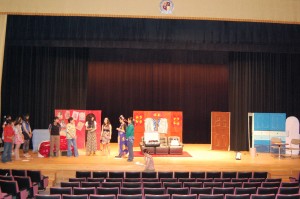
 Mike Harrison is an ESOL teacher. He currently lives and works in South East London. He’s interested in the use of non-verbal stimuli, like sound effects and images, in the classroom. He believes that learning is a personal and social enterprise, so tries to make his classrooms centred round the people in the room and spaces where people can be and work together. He’s also a keen traveller and likes to swim!
Mike Harrison is an ESOL teacher. He currently lives and works in South East London. He’s interested in the use of non-verbal stimuli, like sound effects and images, in the classroom. He believes that learning is a personal and social enterprise, so tries to make his classrooms centred round the people in the room and spaces where people can be and work together. He’s also a keen traveller and likes to swim!
